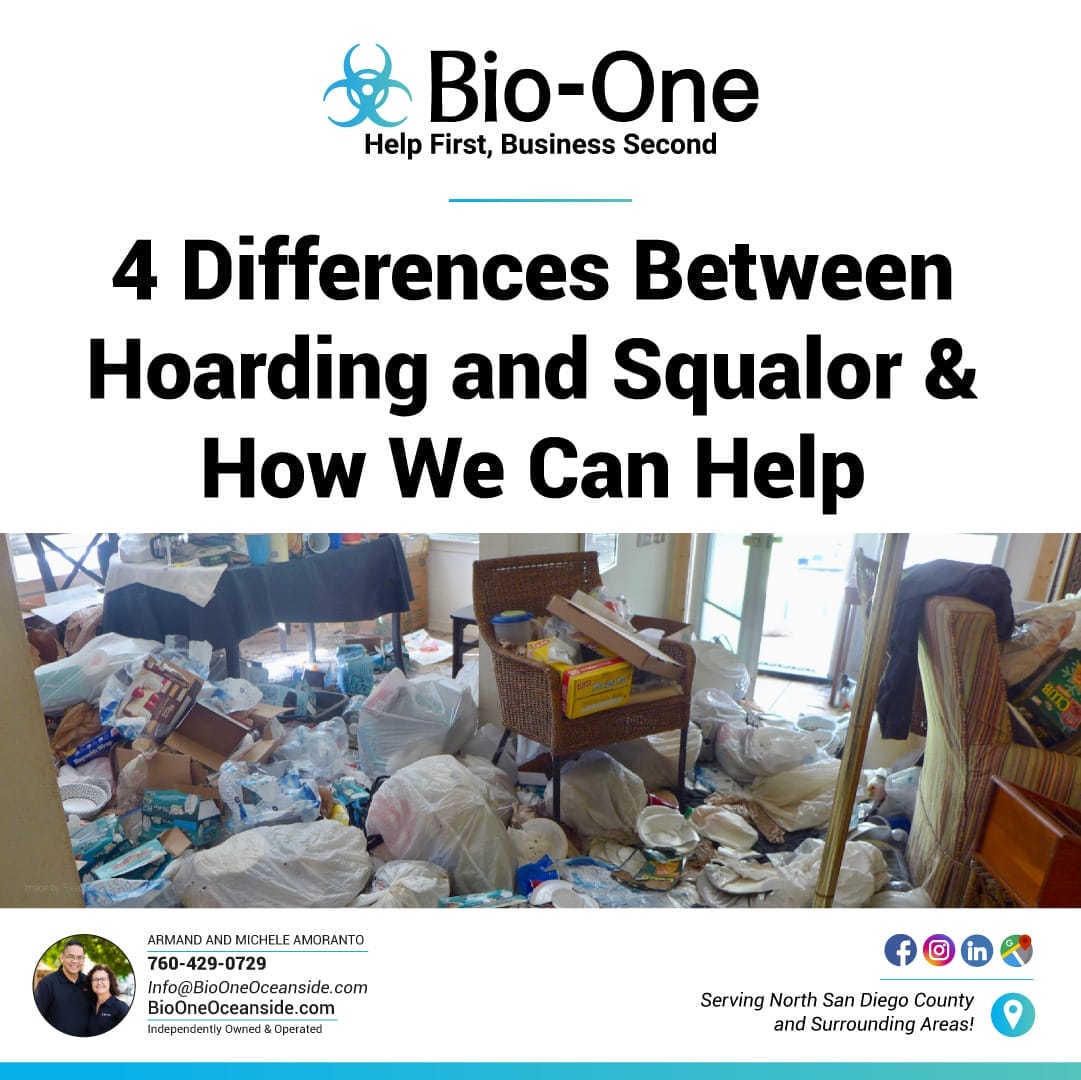
Hoarding and squalor are two terms often used interchangeably, but they refer to different situations. While both involve excessive clutter and disorganization, each has distinct characteristics and underlying causes. In this blog post, we'll explore the differences between hoarding and squalor and discuss how our team at Bio-One of Oceanside can help those affected by these issues.
What is Hoarding?
Hoarding is a mental health disorder characterized by an excessive accumulation of items and difficulty discarding them. People who hoard have a strong emotional attachment to their possessions, often believing that they will need them in the future or that they have sentimental value. Hoarding usually results in overwhelming clutter that can impede daily living activities and pose safety hazards.
Characteristics of Hoarding:
- Difficulty discarding items
- Severe anxiety at the thought of getting rid of possessions
- Overwhelming clutter that makes it challenging to move around a living space
- Limited or no social interactions due to shame or embarrassment about the clutter
- Neglect of living space and personal hygiene
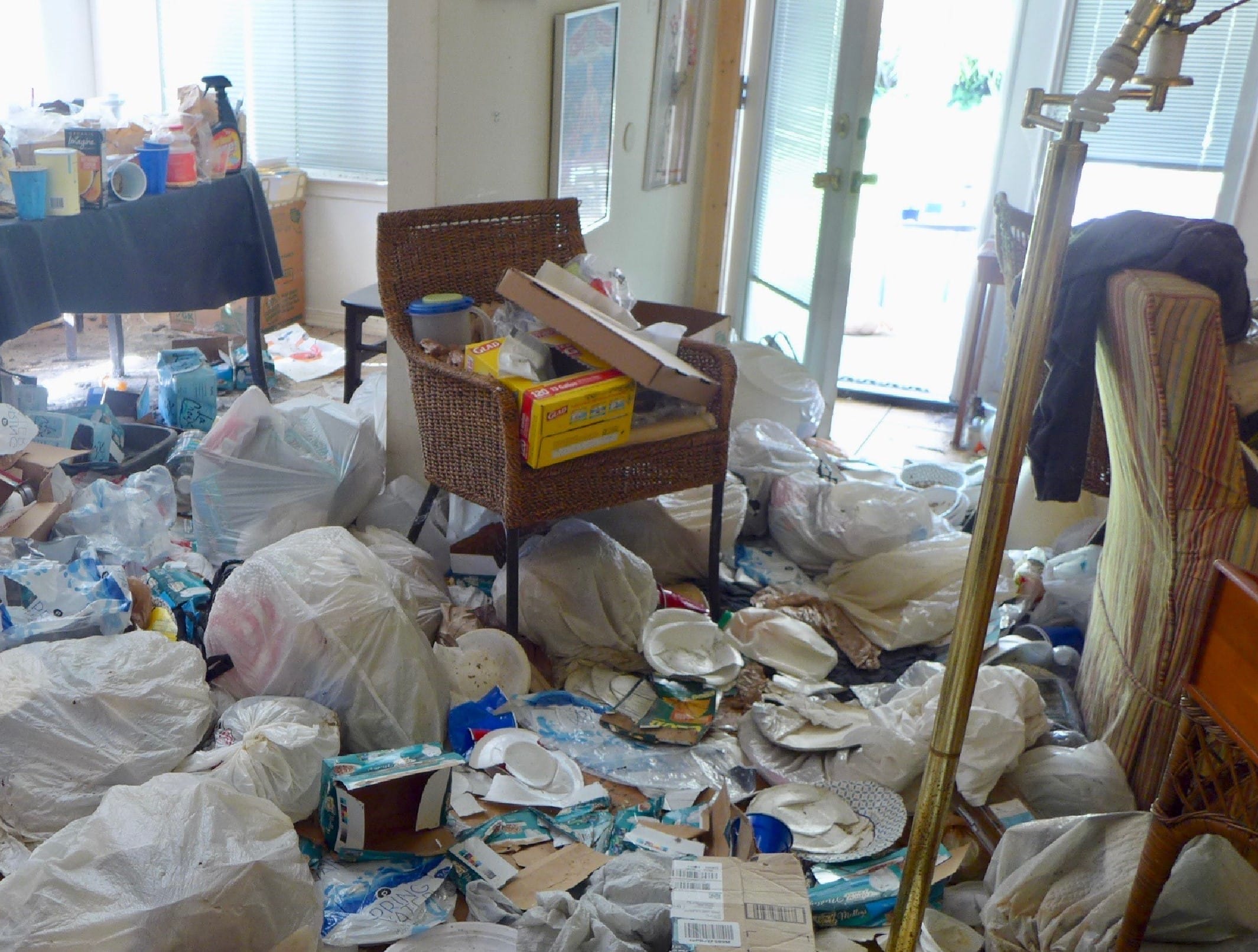
What is Squalor?
Squalor, on the other hand, refers to a living environment that is extremely unclean and unsanitary. It often occurs as a result of neglect or an inability to maintain a clean living space. People who live in squalor may not necessarily have a hoarding disorder, but they struggle with keeping their living space clean and organized.
Characteristics of Squalor:
- Filthy and unsanitary living conditions
- Piles of trash, rotting food, and vermin infestations
- Limited or no access to basic amenities such as running water or electricity
- Neglect of personal hygiene and self-care
- Social isolation due to shame or embarrassment about the living conditions
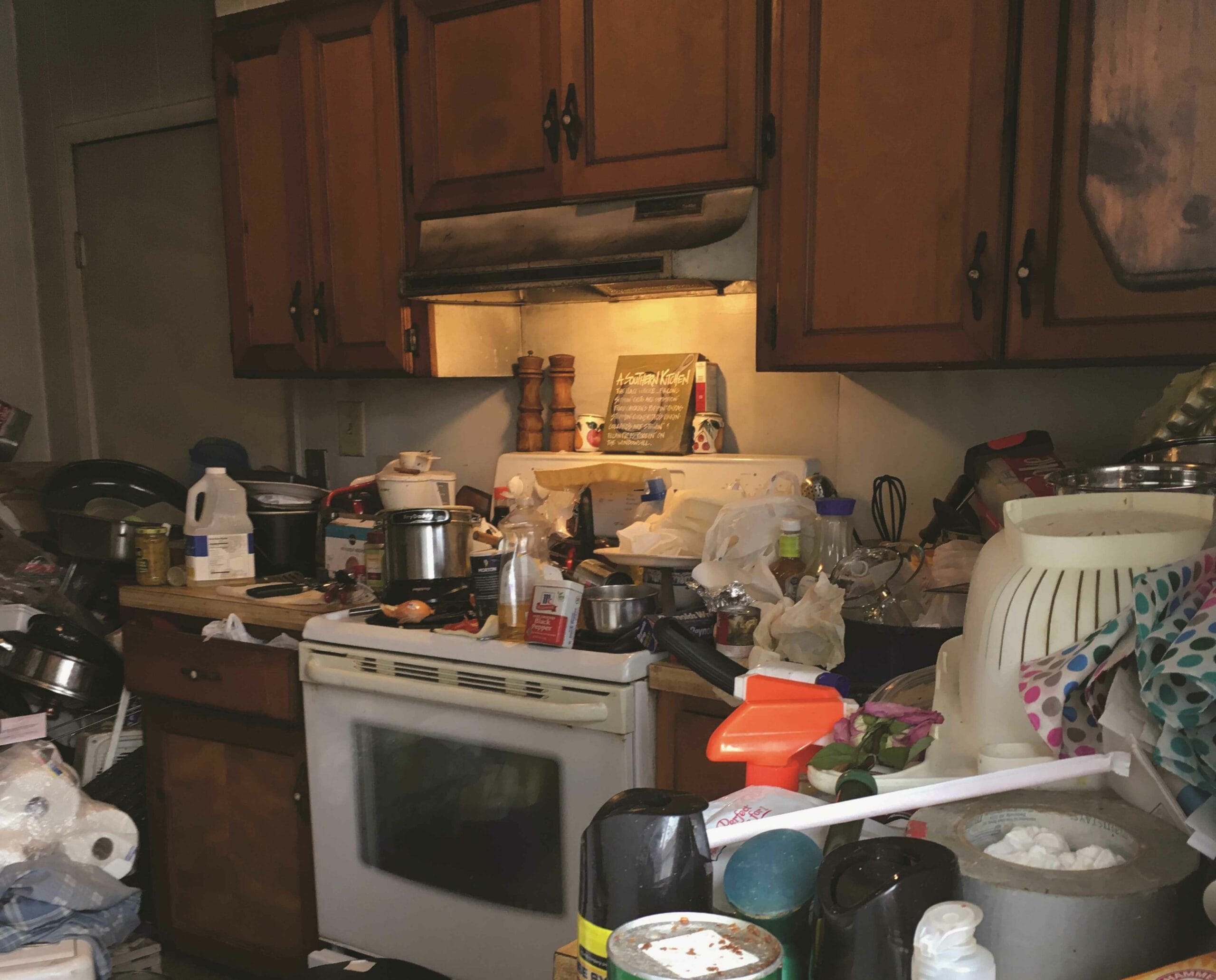
How are Hoarding and Squalor Related?
Hoarding and squalor can often occur together, but they are not the same thing. While hoarding is a mental health disorder, squalor is a symptom that can result from it. For example, a hoarder may have difficulty discarding items, leading to excessive clutter and eventually squalor.
However, not all hoarders live in squalor, and not all people living in squalor have a hoarding disorder. Both conditions can coexist or occur separately. Treatment for hoarding does not necessarily address the squalor, and vice versa.
4 Differences Between Hoarding and Squalor
While both conditions manifest in poor living conditions, each arises from distinct causes and has unique characteristics. Here are four key differences between hoarding and squalor:
- Cause: Hoarding is a mental health disorder often associated with Obsessive Compulsive Disorder (OCD), while squalor is a result of neglect or inability to maintain a clean living environment.
- Clutter versus filth: In hoarding, the problem is excessive clutter due to difficulty in discarding items. In contrast, squalor involves uncleanliness and unsanitary conditions often due to neglect rather than accumulation.
- Awareness: Individuals with hoarding may not acknowledge there is a problem, while people living in squalor may be aware of their living conditions but lack the ability or motivation to improve them.
- Treatment: Treatment for hoarding often involves therapy and support to address the underlying mental health issues. On the other hand, treatment for squalor may focus on improving living conditions through practical interventions such as cleaning services or housing assistance.
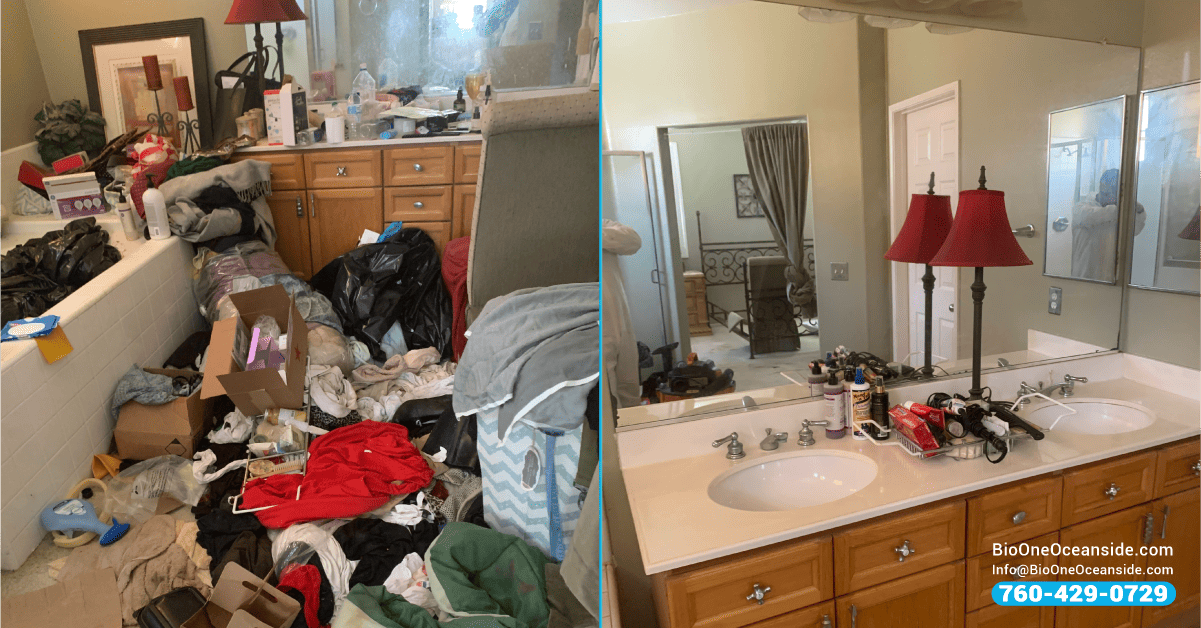
Addressing Hoarding and Squalor
With proper treatment and support, both hoarding and squalor can be overcome. Here are some ways to address these conditions:
- Seek professional help: Both hoarding and squalor may require specialized care from mental health professionals, such as therapists, psychologists, or social workers.
- Develop an action plan: Create a plan that includes a cleanup process with achievable goals and steps to address the hoarding and squalor in the house. This can include decluttering, organizing, and maintaining cleanliness.
- Educate yourself: Learn more about Hoarding Disorders to understand their causes and effects better. This can help you develop coping strategies and empathy for those struggling with these conditions.
- Seek social support: Hoarding and squalor usually result in isolation, so it's crucial to seek help from friends and family or join a support group. Having a strong support system can also assist in maintaining progress toward recovery.
- Be patient and persistent: Overcoming these situations takes time and effort. It's essential to be patient with yourself and stay persistent in your efforts.
- Consider medication: In some cases, medication can help manage symptoms of hoarding disorder, such as anxiety or depression. Consult with a psychiatrist to determine which medication is right for you.

Hoarding Calls for Continous Support
One common misconception about Hoarding Disorder is that it is a choice or a result of laziness. However, research has shown that HD is a complex condition influenced by factors like genetics, brain structure and function, and life experiences. Therefore, it's essential to approach treatment with empathy and understanding.
Furthermore, recovery from hoarding is not a one-time event; it requires continuous support and effort. Even after completing a treatment program, individuals may still struggle with triggers and relapses. Therefore, seeking ongoing support is crucial in maintaining progress and preventing a relapse.
Bio-One of Oceanside Can Help
Here at Bio-One of Oceanside, we understand the challenges faced by individuals struggling with hoarding and squalor. Our trained professionals offer compassionate and discreet services to help declutter and restore living spaces affected by any of these scenarios.
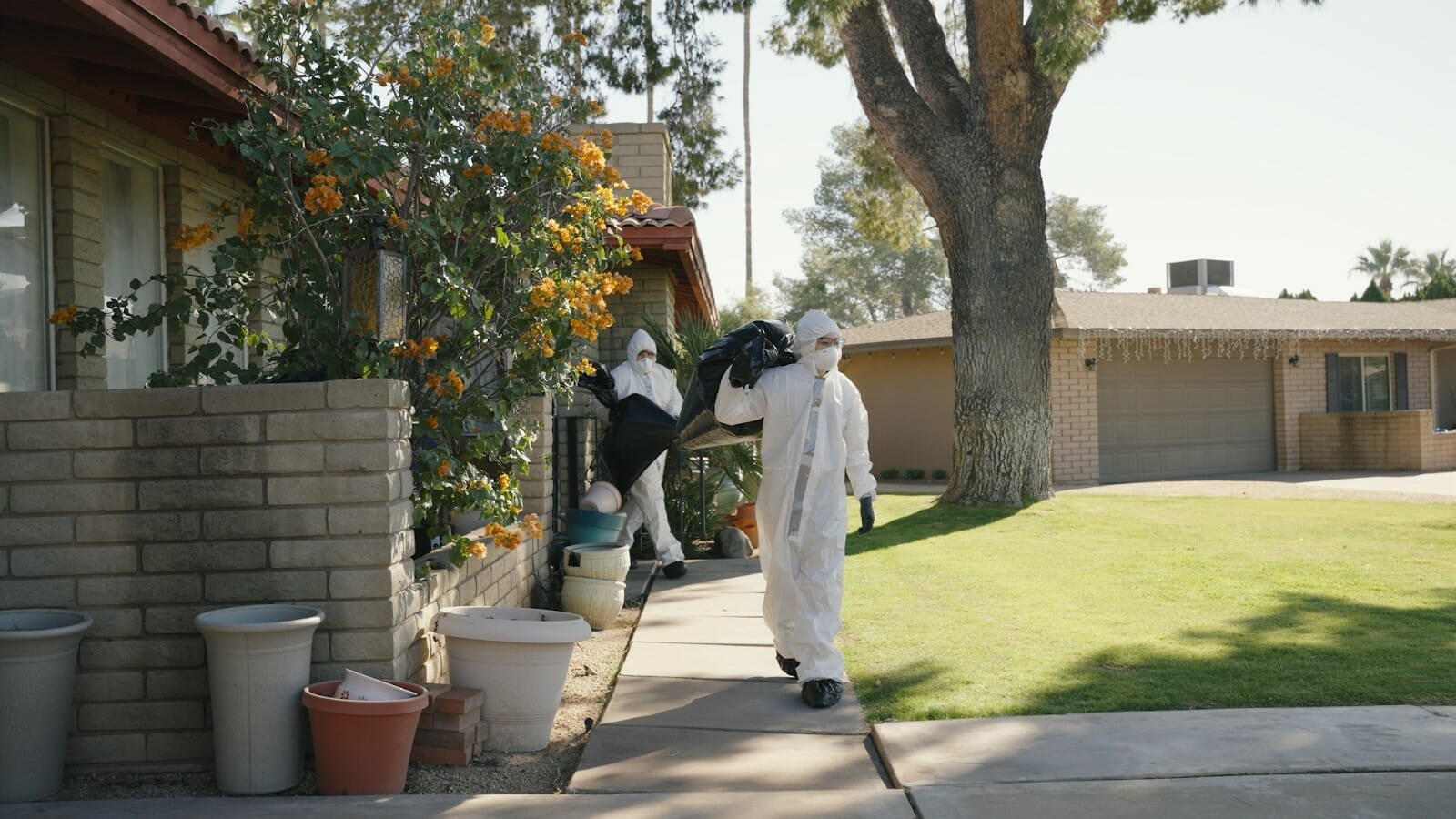
Additionally, we provide ongoing support and resources to assist individuals in maintaining a clutter-free environment. Our team is committed to helping those with hoarding overcome their challenges and accomplish a healthier, happier life. If you or a loved one is struggling with hoarding and squalor, don't hesitate to reach out to Bio-One of Oceanside. We are here to help and support you every step of the way!


